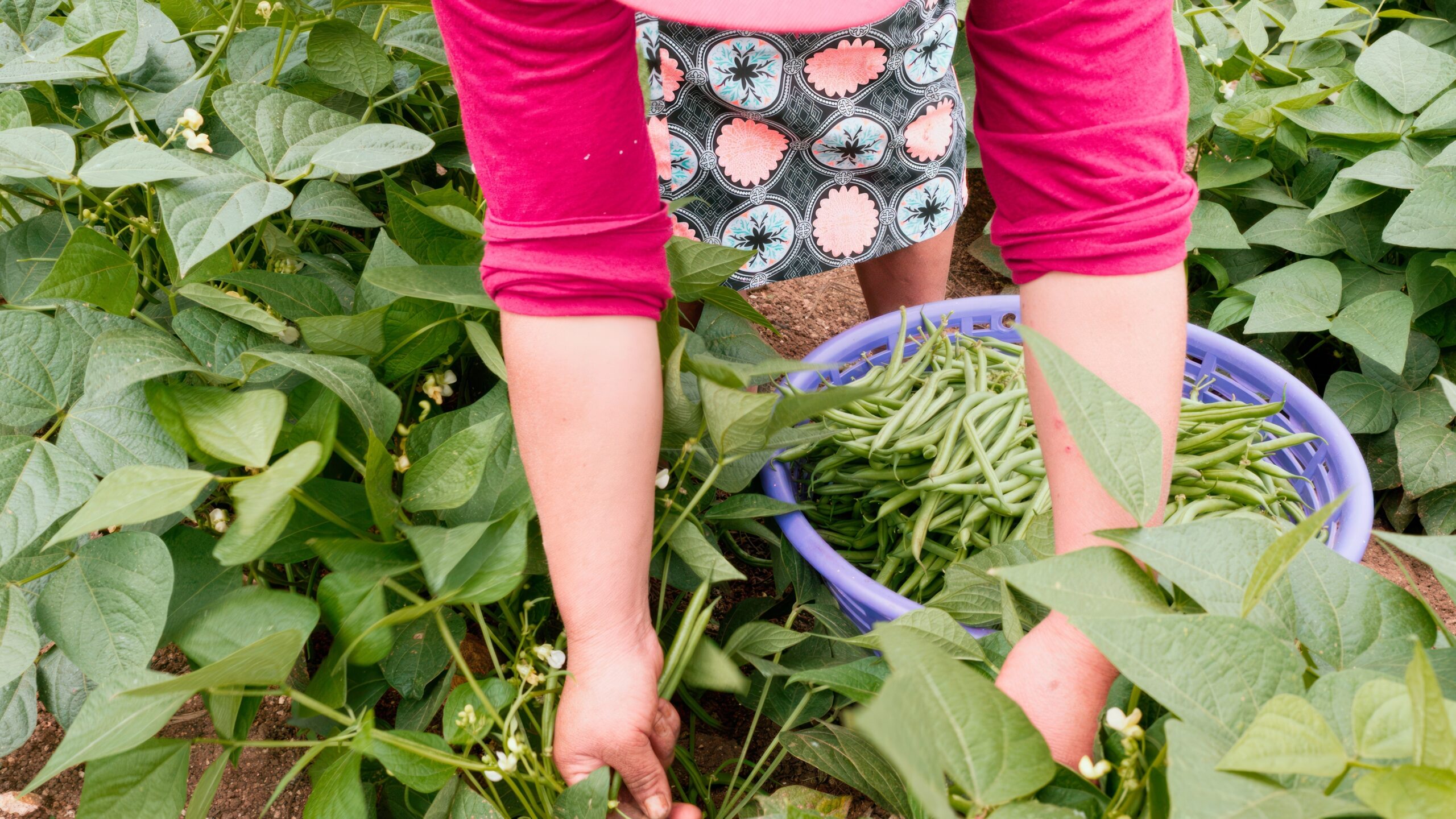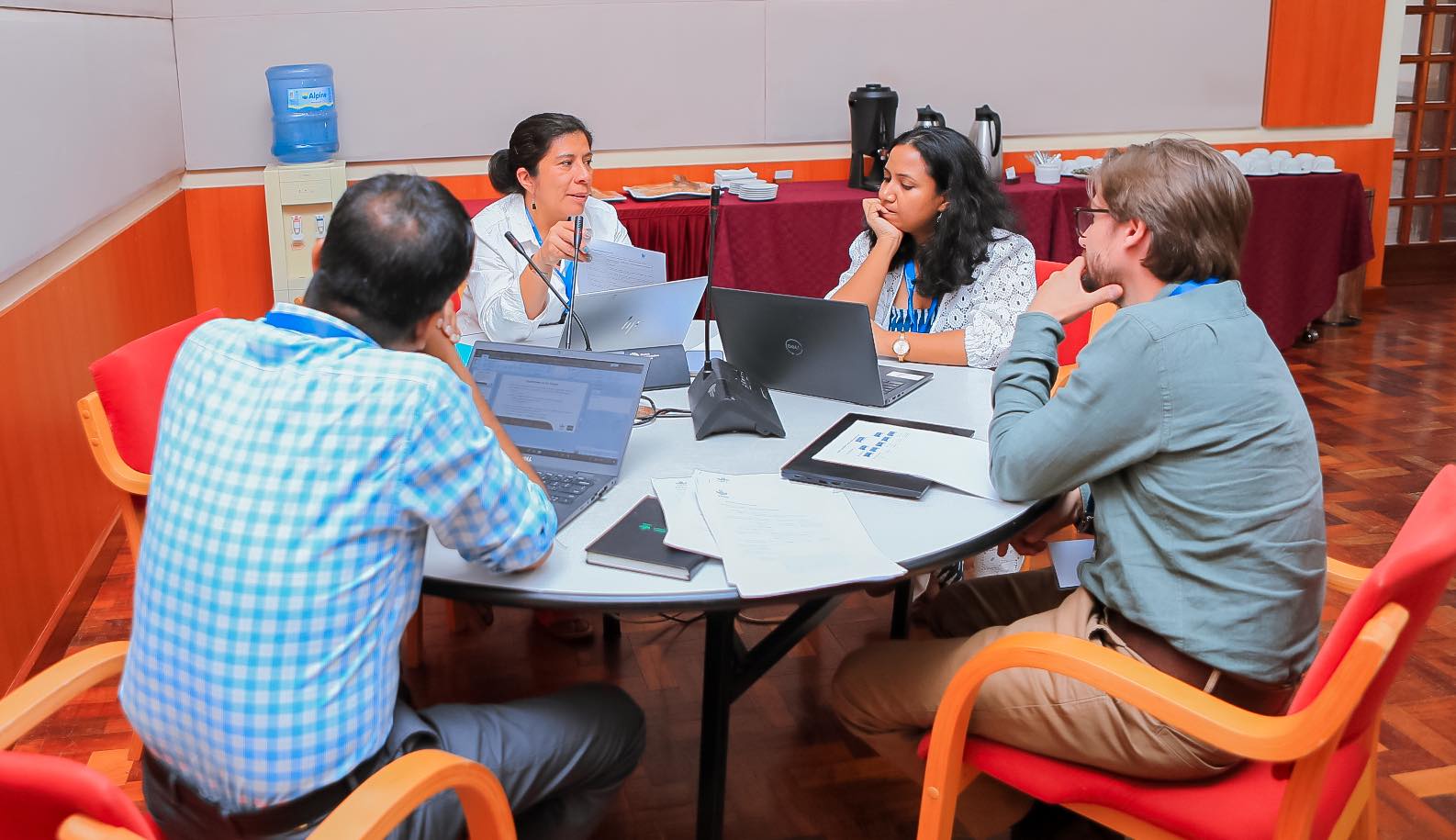By now, most Americans have heard of the pending “fiscal cliff,” but have they heard of the “food cliff?” According to Josette Sheeran, Vice-Chairman of the World Economic Forum (WEF) and former Executive Director of the World Food Programme (WFP), falling off this precipice could have even more dire and far-reaching consequences than America’s financial woes, and would be felt throughout the world for generations to come.
Sheeran delivered her remarks during the Annual Martin J. Forman Lecture this past Tuesday at IFPRI’s Washington, DC office. The lecture series, now in its 22nd year, honors the former Head of USAID’s Office of Nutrition for his lasting contribution to international nutrition research and advocacy.
The latest data on global food production, supply, hunger, and malnutrition paint a complicated picture for the future of food and nutrition security, said Sheeran. On one hand, if we add up the total number of available food calories produced by the people living on our planet, here is more than enough food to meet the caloric requirements of every man, woman, and child. Even after crop loss, waste, and using food as animal fodder, there is still more than enough to meet basic dietary needs, she said.
Yet, clearly, not everyone’s needs are being met: almost 1 billion people are undernourished, and this number will only rise, as global population figures are predicted to balloon to 9.1 billion by 2050. Said Sheeran, “Over the next 40 years, we need to produce more food than the last 8,000 years combined!”
According to Sheeran, recent developments indicate that the “food cliff” may be even closer than we previously thought. In six of the past 11 years, global food consumption has exceeded production, and food reserves are now “dangerously low,” particularly for staple grains such as wheat and maize. US wheat production, for example, has dropped 20 percent this season due to drought, and wheat harvests in the EU, Russia, and Ukraine are also low. The FAO predicts global wheat production will fall below demand in 2012-2013, and maize prices could rise by as much as 180 percent by 2030, partially due to the impacts of global climate change. We are entering, in Sheeran’s words, “an era of permanent food crisis.”
So what can we do?
Sheeran proposes a “21st century paradigm” for food and nutrition, based on four important “game changers” in public-private partnerships. First, enhance partnerships to produce and expand access to affordable, nutrient-dense, fortified foods, such as biofortified crops and emergency food packets for the severely malnourished. Second, invest in smallholder farmers— particularly women—and in whole agricultural value chains. Such investments have led to major payoffs not only toward increasing production but also raising incomes and reducing poverty. Sheeran challenged the audience to change the way we view the entire food and nutrition system and form a sustainable “circular food economy,” as the third game changer. She cited the Zero Hunger Project in Brazil and the Grow Africa initiative as excellent recent examples of such “whole picture” level approaches. Finally, Sheeran recommended engendering strong, inspired leaders who are prepared to take action in the growing face of food and nutrition security challenges. As she explained, during the 2007-08 global food crisis, she “didn’t know who to call,” as there was no one person or governing body suitably prepared to take effective action at the time.
The “food cliff”, indeed, poses a serious challenge, but Sheeran imparted hope: the power of working together, breaking down barriers, and forming innovative partnerships that can shift us away from the edge and move millions out of hunger and malnutrition.







